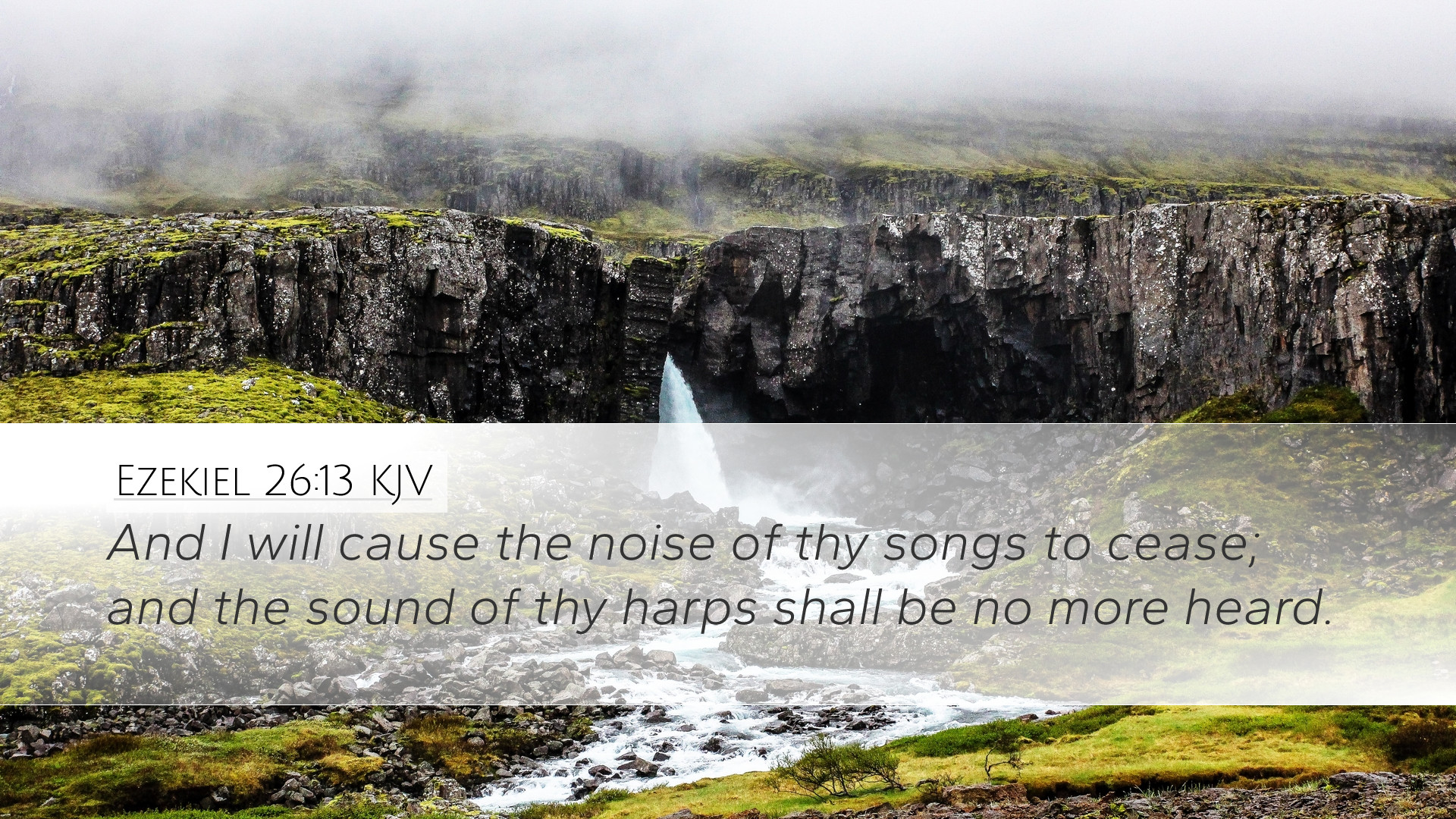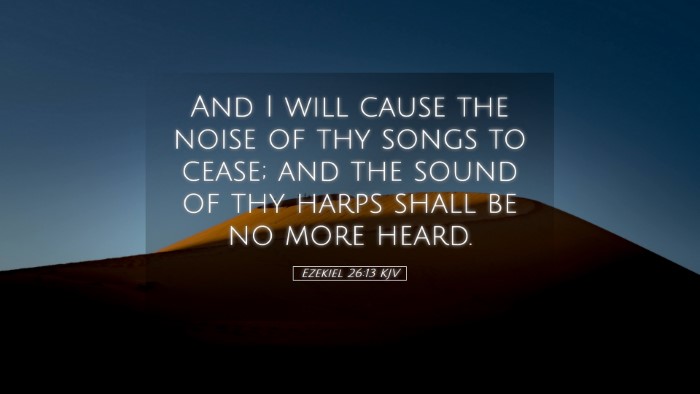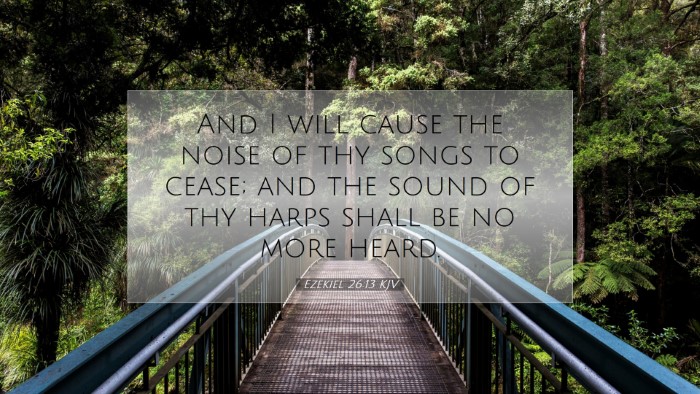Ezekiel 26:13 Commentary
Verse Reference: Ezekiel 26:13 - "And I will cause the noise of thy songs to cease; and the sound of thy harps shall be no more heard."
Contextual Background
This verse is part of a prophecy against Tyre, a prominent Phoenician city that was known for its wealth, commerce, and cultural influence. Throughout history, Tyre has been described as a beautiful and fortified city, often a symbol of pride and economic power. Ezekiel, as a prophet of God, delivers a message of impending judgment against Tyre as part of the broader theme in the book that addresses the nations surrounding Israel.
Theological Insights
Ezekiel 26:13 highlights the profound shift from joy and celebration to desolation and silence. The imagery of “the noise of thy songs” and “the sound of thy harps” conveys the cultural richness and prosperity of Tyre, which would soon be interrupted by the divine decree of judgment. This prophetic word serves as a stark reminder of God's sovereignty over nations and His ability to bring low those who exalt themselves.
Commentaries Overview
- Matthew Henry: Henry emphasizes the cessation of joyful music as indicative of the spiritual state of Tyre. The depravity and pride of the city led to its downfall. Henry remarks that the joyous sounds that once filled the streets would be replaced by silence, symbolizing the loss of their influence and vitality.
- Albert Barnes: Barnes elaborates on the finality of this judgment. He notes that Tyre would no longer exercise its previous prominence. The loss of music and mirth signifies not just a physical destruction but also a spiritual desolation, wherein the city's heart—the source of its cultural expression—will be extinguished.
- Adam Clarke: Clarke reflects on the role of music in expressing communal identity and worship. He highlights that songs in ancient cultures often accompanied their religious and social lives. Clarke interprets the cessation of music not only as a national tragedy for Tyre but as a heavy reminder of the transient nature of human accomplishments in the face of divine will.
Interpretation of Key Terms
The analysis of key phrases in this verse is essential for grasping its profound implications:
- "Noise of thy songs": This refers to the vibrant cultural life and festivities that were integral to Tyre's identity. Songs were a means of expressing joy but also of honoring their deities and celebrating their achievements.
- "Harps shall be no more heard": Harps symbolize artistry and the rich musical tradition of Tyre. Their silence illustrates a complete cutoff from cultural expression and communal life, marking a total collapse of the city's spirit.
Lessons for the Church and Society
This verse serves as a searing reminder for contemporary readers and leaders:
- Humility Before God: The pride that permeates great cities or institutions can lead to a downfall if not kept in check by humility. The church must be vigilant against arrogance and self-reliance.
- Cultural Relevance and Spiritual Vitality: Just as Tyre’s music was a reflection of its life, churches today must ensure that their cultural expressions are rooted in spiritual authenticity. A church may attract attention through music and art, but without a foundation in God’s truth, it can become empty.
- Divine Judgment and Mercy: While this prophecy indicates judgment, it also reflects God’s justice. Understanding the nature of God’s justice invites believers to approach Him with repentant hearts and an eye towards restoration rather than just retribution.
Conclusion
Ezekiel 26:13 stands as a powerful reminder of the fleeting nature of human achievement contrasted with the enduring sovereignty of God. The cessation of Tyre's music represents the broader theme of judgment that calls out to all nations to heed God's warnings. Pastors, students, theologians, and scholars should reflect on these insights to deepen their understanding of God’s dynamic role in history and the importance of cultural expressions as a reflection of our spiritual state. As Tyre's downfall illustrates, what is celebrated today may swiftly turn to silence should we journey away from the paths of righteousness and humility.


